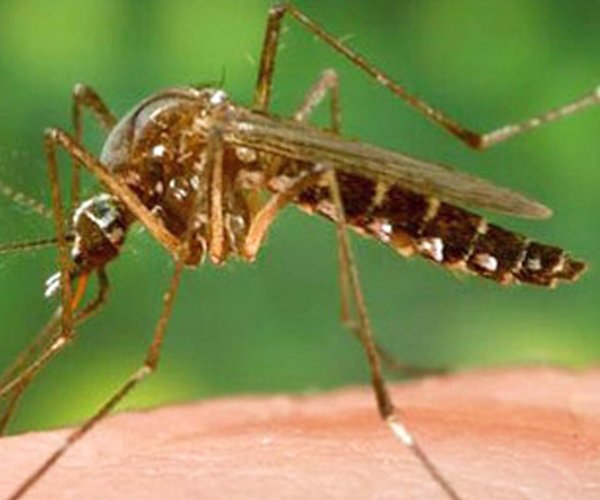Less than a year after California saw an historic increase in whooping cough cases, another contagious disease is making a comeback — measles.
“California, like the rest of the nation and, indeed, the world, is experiencing an increase in measles cases that is entirely preventable with immunization,” said Dr. Gilberto Chávez, deputy director of the Center for Infectious Diseases at the California Department of Public Health. “Anyone who will be traveling or is expecting contact with recent international travelers should confirm that their vaccinations are up-to-date.”
Since April, seven new cases of measles were reported in California, bringing the statewide total to 13 for this year. Last year 27 cases of measles were reported. In 2009, only nine cases were reported. Of the cases reported for this year, three were reported in Mendocino County and two in Santa Clara County. Single cases have been reported in Alameda, Orange, Sacramento, San Benito, San Diego, San Mateo, Sonoma and Stanislaus counties.
“This is very rare,” said Dr. John Walker, Stanislaus County Public Health officer. “This case we just confirmed this week is the first confirmed case of measles in this county since 1993.
“There are multiple factors that can contribute to this,” Walker added, “Decreasing vaccination rates, foreign travel, and the nature of these viral diseases is (they) do go in cycles. My concern is we haven’t seen a measles epidemic in the United States for 20 years.”
Federal officials report a nationwide increase in measles cases. Nearly all of the affected individuals traveled to Europe, Asia or Africa, or had contact with international travelers. Currently, outbreaks of measles are occurring in many European countries, as well as India and the Philippines. In France, more than 9,000 measles cases have been reported in the last six
months, including fatal cases and cases with neurological complications.
“Because measles vaccination usually starts at 12 to 15 months of age, infants 6 months or older traveling internationally may need an early vaccine dose before departure,” added Chávez. “Parents should consult with their health care provider to ensure infants and children are properly immunized.
““It’s also alarming that we’ve seen progressively a few more people that are not vaccinating their children against measles and that provides for really not a good situation in terms of us exposing infants to what is a very, very serious illness and then spreading that across our communities,” he said.
Walker said the Stanislaus County Public Health Department is preparing a notification to community physicians that there is an exemption to the normal age of vaccination for infants whose parents will be taking them abroad. They can get a vaccination at 6 months of age.
“My strong feeling is there’s minimal risk with the vaccine,” Walker said. “I certainly have had no hesitancy with my children and 12 grandchildren.”
Measles is a highly infectious disease that typically causes a fever, runny nose, cough, sore eyes and a red rash all over the body. A person with measles can be contagious for up to four days before and four days after the onset of rash.
Even in previously healthy children, measles can be a serious illness requiring hospitalization. As many as one out of every 20 children with measles gets pneumonia. About one child in every 1,000 who gets measles will develop encephalitis — an inflammation of the brain that can lead to convulsions, deafness or brain damage. For every 1,000 children who become ill with measles, one or two will die from the disease.
Travelers who develop symptoms of measles should call their healthcare provider before going to a healthcare facility so that appropriate steps can be taken to protect other patients from measles.
To contact Kristina Hacker, e-mail khacker@turlockjournal.com or call 634-9141 ext. 2004.





